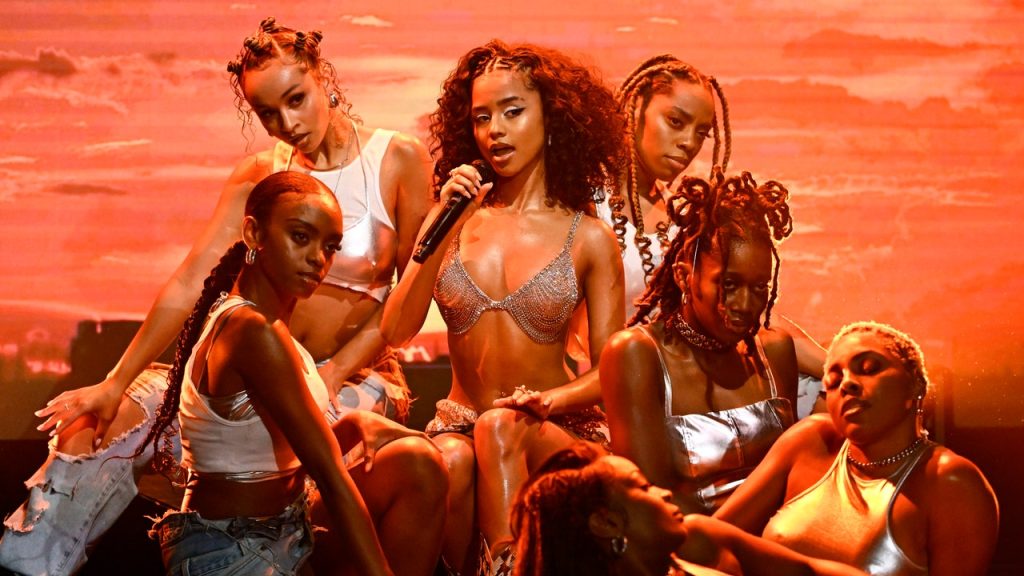In today’s world of braids, freestyle braids have become a popular trend, with R&B artist Tyla serving as a muse for this intricate and personalized style. These braids boast intricate patterns, swirls, and spontaneous shapes, distinguishing themselves with unconventional designs rooted in West African symbolism. Braider Rosemery Duran notes that clients often draw inspiration from nonhuman references such as art, gates, plants, or crop circles, adding a spiritual and emotional connection to the elaborate and special style. Many clients seek out freestyle braids during important milestones in their lives, such as giving birth, starting a new phase, or celebrating an achievement, finding emotional and spiritual fulfillment through the intricate braiding process.
In contrast to traditional cornrows, freestyle braids adopt spontaneous shapes braided in multiple directions, with many variations featuring an adinkra symbol as a centerpiece. These Ghanaian emblems symbolize concepts like greatness, charisma, and freedom, appearing on fabrics, pottery, and architectural elements. The style is rooted in precolonial West African symbolism, embracing experimentation and celebrating the drama and personalization of Black hair. By deviating from the neatness often prioritized in Black hair politics, freestyle braids protest normative beauty standards and offer a space for creativity and self-expression.
The trend of freestyle braids hearkens back to the early 2000s, with icons such as Alicia Keys sporting daring and innovative braid styles that challenged traditional norms. The resurgence of freestyle braids in contemporary fashion reflects a timeless appeal that defies fleeting trends, offering a fresh perspective on Black hair as an accessory for self-expression. Braids no longer serve solely as a means of protection but also as a statement of individuality and creativity, showcasing the versatility and beauty of Black hair in all its forms.
The artistry and skill of Black braiders are celebrated through freestyle braids, with braiders like Rosemery Duran creating intricate and meaningful designs that go beyond mere aesthetics. Clients often seek out freestyle braids for emotional or spiritual reasons, finding solace or empowerment through the intricate braiding process. The style’s focus on personalized designs and unconventional shapes offers a sense of empowerment and self-expression, challenging conventional beauty standards and celebrating the rich history and cultural significance of Black hair.
In a world where beauty standards often prioritize neatness and conformity, freestyle braids offer a refreshing alternative that embraces experimentation and creativity. By incorporating diverse influences and symbols into their designs, braiders like Rosemery Duran create personalized and meaningful styles that reflect the unique experiences and emotions of their clients. The expressive nature of freestyle braids transcends mere aesthetics, offering a space for empowerment, self-expression, and celebration of Black culture and heritage. As the trend continues to gain popularity, freestyle braids serve as a powerful statement of individuality and creativity within the ever-evolving world of braids and hair fashion.













